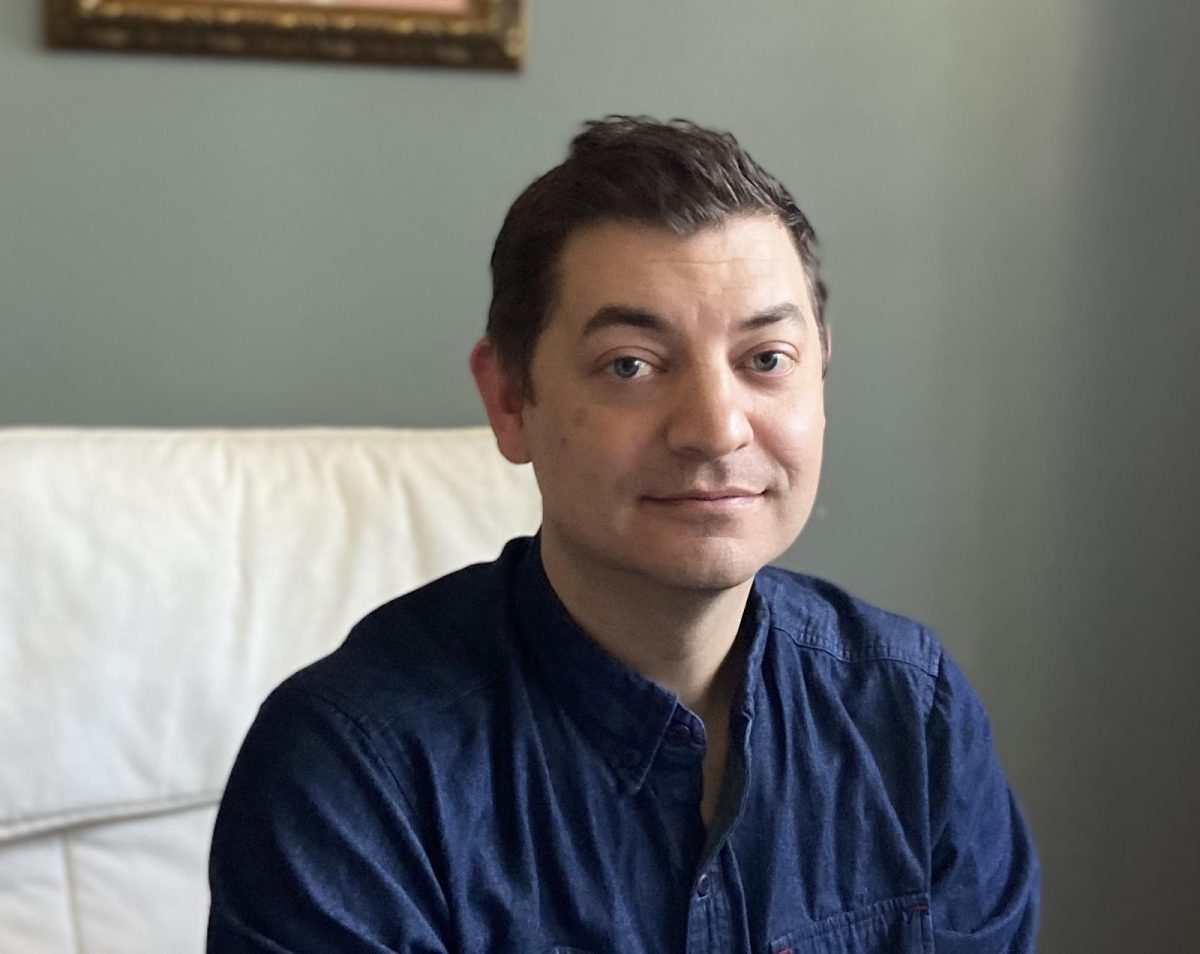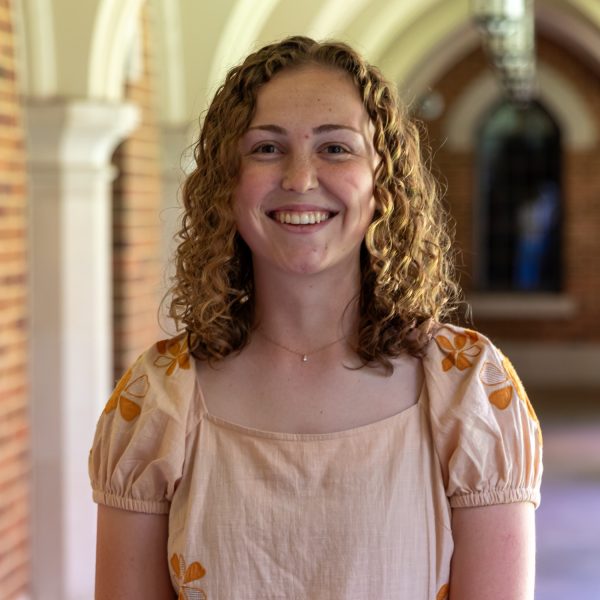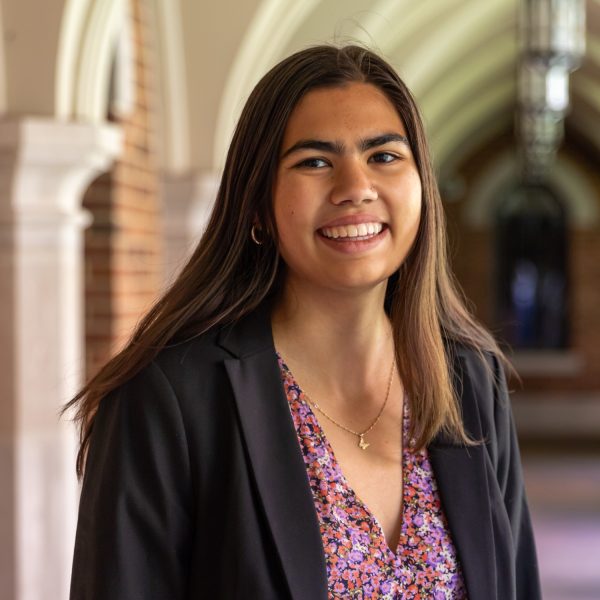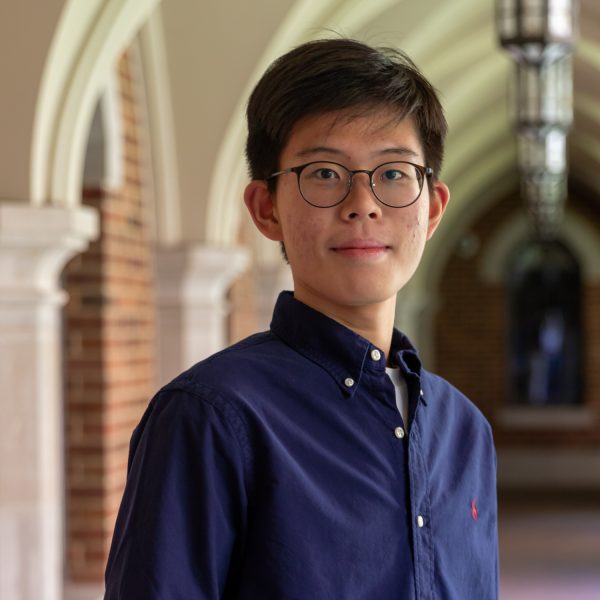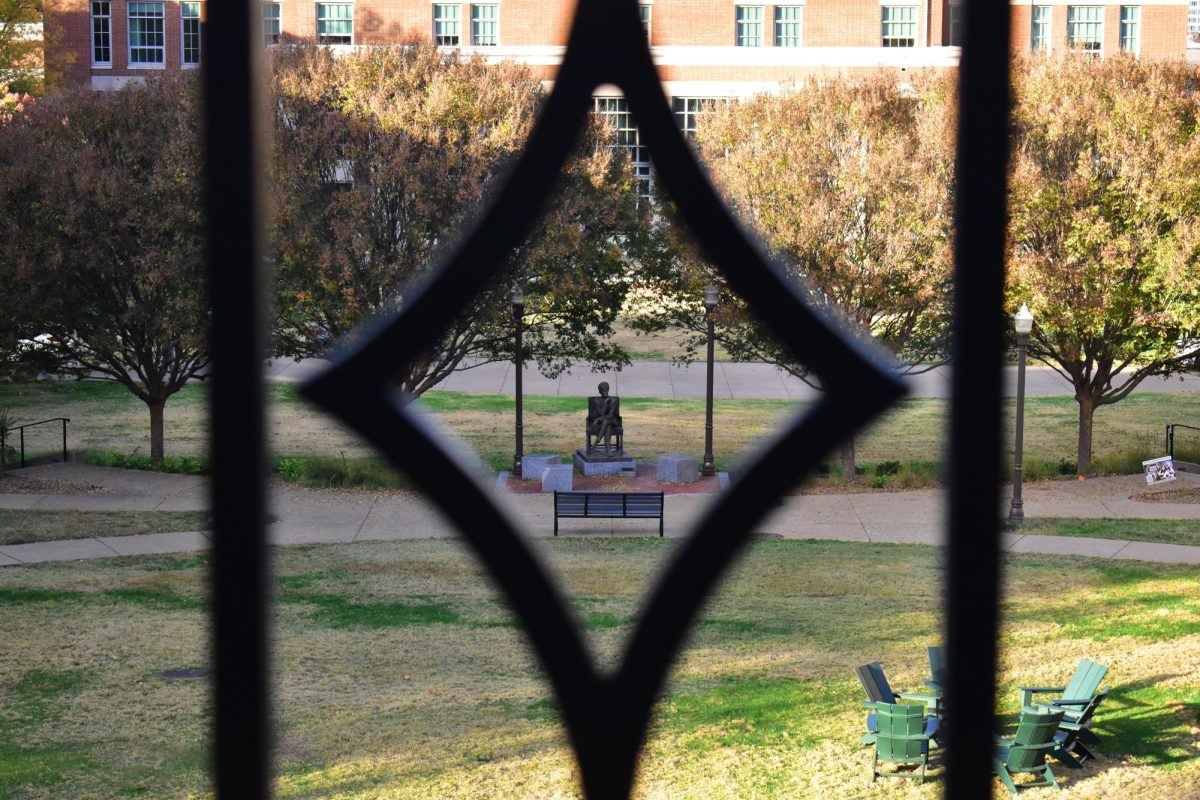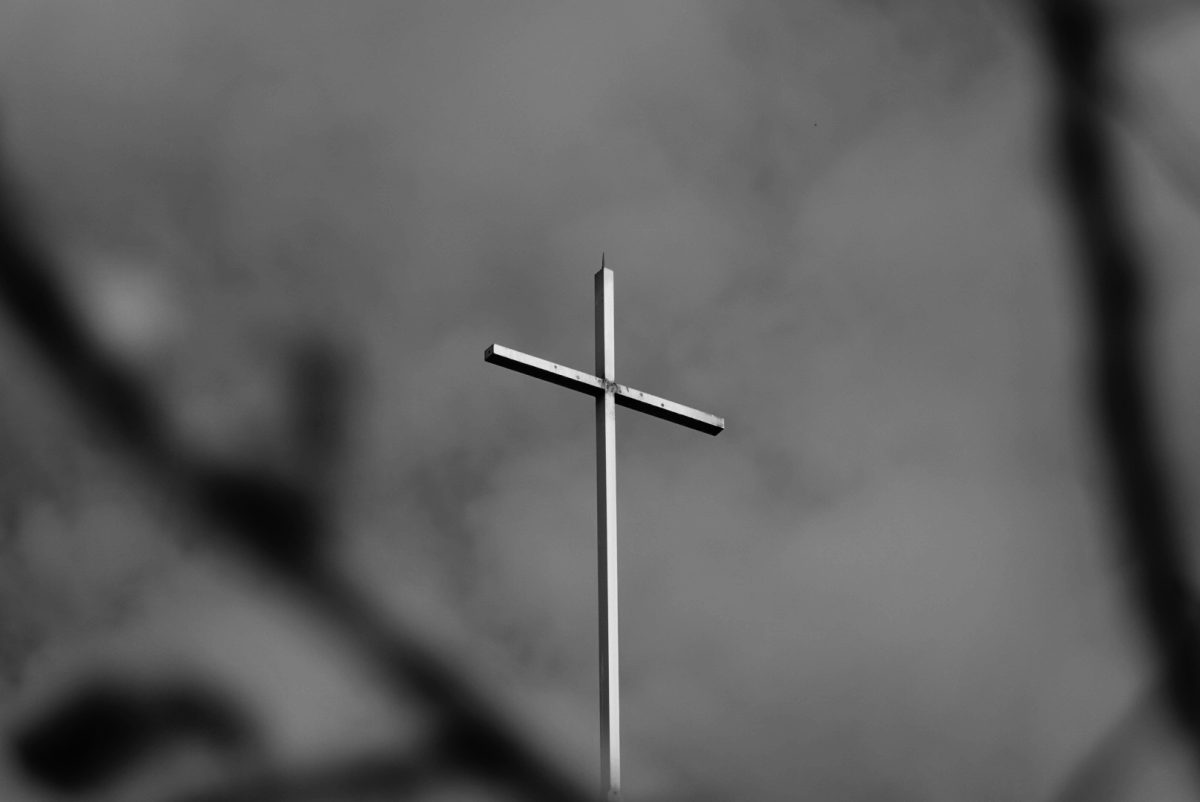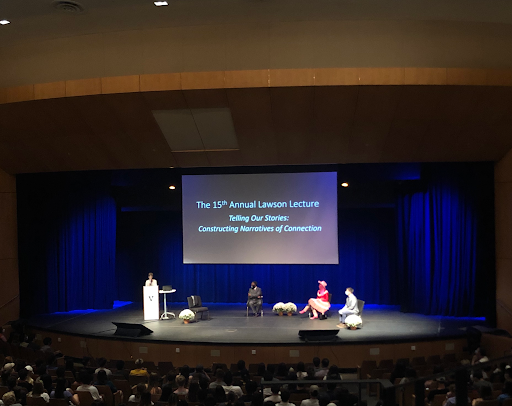Author Kevin Wilson (BA ‘00) delivered the 17th annual Lawson Lecture at Langford Auditorium on Sept. 10. He is the author of the 2023 Campus Reading, “Now Is Not the Time to Panic,” which delves into themes of mental health, youthful romance and identity through art.
Wilson graduated from Vanderbilt with a degree in English and a minor in women’s studies and is now an associate professor in the English department at The University of the South. The Hustler sat down with Professor Wilson before his delivery of the Lawson Lecture to discuss his Vanderbilt experience and about his latest novel.
Vanderbilt Hustler: What does it mean to you to stay connected to Vanderbilt even after graduation?
Wilson: Vanderbilt has been a big part of my life, even after graduating, and part of that was that the relationships I made with professors and people at the university were so important. It was hard not to be connected to the university even after I graduated, and moments like these remind me how lucky I was to attend a school like Vanderbilt.
My time at Vanderbilt was hugely formative for me as a person and as a writer. I’ve come back to read my books a couple of times at Vanderbilt in the years since but usually directed toward smaller groups like the MFA program. To have the opportunity to come and talk to the entire incoming first-year class is really incredible and a real honor. Because Vanderbilt was such a meaningful thing for me, it felt like a dream come true to get to do it.
How did you find and build smaller communities within the larger Vanderbilt experience, and how did they impact your overall journey at the university?
Those of us who have been through Vanderbilt and had great experiences share this feeling. No matter how overwhelming Vanderbilt might seem at first, we somehow find a way to discover these smaller communities within the larger university. These are groups of people who care about the same things we do, and that’s truly amazing.
As we step out into the world after leaving Vanderbilt, it can seem vast and overwhelming once again. But there are so many moments when my Vanderbilt connections come back to me, reminding me of the importance of staying connected.
How did you feel heading into your first semester at Vanderbilt as an incoming first-year?
When I first arrived at Vanderbilt, I moved into my dorm, which was in Lupton Hall on the top floor of the Branscomb Quadrangle. Shortly after, an upperclassman came up to me and said, ‘Hey, I’m taking you to dinner with your freshman cohort. There are about 10 of us.’ So, we walked across the street to a restaurant, and everyone was talking about their school experiences, where they were from and asking when we would find out our class schedules. That’s when I found out that class schedules were determined during orientation over the summer, which I had completely skipped.
So, my first impression of my first semester at Vanderbilt was pretty much panic. I arrived, and instantly I felt incredibly dumb and like I was lightyears behind everyone else. My first semester was all about trying to catch up and prove to myself that I could handle Vanderbilt. My initial impression was that I absolutely could not. I felt like I was in over my head, not knowing what was going on. It was an incredibly uncomfortable position to be in. I felt isolated, especially when upperclassmen and other freshmen around me were discussing their classes and experiences.
It wasn’t until my sophomore and junior years that I truly formed close friendships. I had friends before, but the ones I became closest to were like, ‘Where have you been?’ It turned out they had all met during the summer orientation before our first year started. I couldn’t help but think, ‘Oh, man, I missed out on that.’
One of the main themes in ‘Now Is Not the Time to Panic’ is mental health and Frankie and Zeke’s different struggles with learning how to care for themselves. How did this theme come to manifest in the novel?
In every book I write, there are characters who are struggling in different ways with mental health because it’s just been such a huge part of my life for as long as I can remember. Even with this one, trying to figure out Zeke being bipolar and the way in which his memories were different from Frankie’s was important to me. I wanted it to be clear that not everyone has the same memories or the same expectations or the ability to handle things in the same way.
When I write stories, my number one goal is to convey the characters safely. Bad stuff will happen, things will be difficult, but can I get them from here to here? Writing taught me that, if I can just keep writing the story, I can figure out how to stay alive in the real world. When you hear someone else’s story, just those brief little moments, and you’re like, ‘Oh, I know what that feels like,’ or ‘I know what that is,’ it is a reassurance that you’re not the only person that has ever thought of that thing or had that worry or felt hopeless. I think the worst thing is to feel like you’re the only person in the world. And so these moments where you feel less alone are super important. It’s why I love art.
Do you re-read your books after publication?
Yeah, it’s a bit strange. You write the book and think you are done, but then the editor comes in and says there’s a lot you need to fix. So, you go back and rewrite and rewrite. When the book is finally cleared for publication, there’s about a year before it actually hits the shelves. They need to work on things like designing the cover, finding a suitable release date and getting the sales team ready. During that time, they provide you with what the final copy will look like, and you have to read it again to ensure there are no errors.
But this is different from reading it as a regular reader. It’s almost like you’re examining an object, trying to fix it. After that stage, I don’t typically read my books again once they’re out. It would feel a bit strange to pick one up off the shelf at a bookstore and think, “It’s pretty good.”
However, I have two boys now. My oldest is 15, and my youngest is 11, and we read together every night. For my last two books, my oldest was like, “Hey, let’s read them together.” I was hesitant to read them aloud, as it seemed weird to read my own book to my kids. But instead, we listened to the audiobook at night. So, for the last two books, I had the unique experience of listening to them as if I hadn’t written them. It’s been really enjoyable. There are moments when I forget that I’m the author, and I just immerse myself in the story, much like my sons do. It’s a different perspective that I’ve come to appreciate.
A major theme in the book is giving up control when you put art into the world. Do you feel this way about your own writing?
It can be scary. But to me, it’s kind of thrilling. I made it, but I can’t control it. There’s a point where you just have to hope for the best, hope people receive it. Not everyone is going to like it, and some people are even going to hate it. But that’s the deal you make when you put it out into the world. It really is like sending a signal out into the air, and you are only hoping that it finds a receiver, that somebody hears that little signal and that it resonates with them in some way. If you’re really, really lucky, it finds the receiver. And then if you’re the luckiest possible, the receiver returns that message back to you in a new way, and you hear what somebody thinks of it or how it meant something to them. That animates you to make a new thing.
Deciding to be a writer takes courage. How did you decide that you wanted to pursue writing professionally?
I always assumed that we all have things about which we’re passionate, even if we’re unsure whether we can turn them into a viable career. For me, my passion for writing was one of those things. It mattered enough to me that I was willing to do whatever it took to make it happen. However, it’s essential to clarify that I didn’t consider myself the best writer in my class or anything like that. What set me apart was my unwavering love for writing. I reached a point where I knew I wanted to do it for the rest of my life, regardless of whether I made money from it or achieved success in the traditional sense.
I observed that some of my peers found other passions they loved more and were better at, and they pursued those with great enthusiasm. Others decided that the potential for rejection in their chosen field wasn’t worth it, so they shifted their focus elsewhere. However, for me, the fear of failure didn’t deter me because, in many ways, I had built my life around overcoming failures. I was accustomed to it, so I decided to persist. My approach was simple: I wouldn’t quit. It wasn’t about being the best or the brightest; it was about outlasting everyone else. I kept going, working hard and not giving up.
Over time, I realized that sometimes, the key to success isn’t about being the best; it’s about being the last person standing, the one who didn’t quit. I looked around after six years and thought, ‘I’m still doing this. I’m still working hard to make it happen’ Others had chosen different paths, and that was perfectly fine. The pleasure I derived from writing was more fulfilling to me than anything else, and that’s why I stuck with it.
Answers have been edited for length and clarity.

